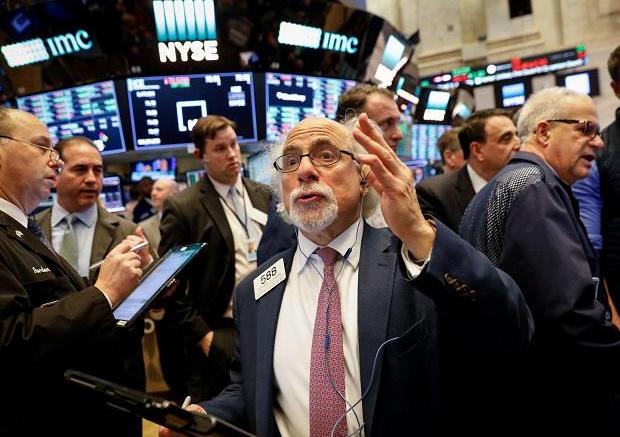To the Editor:
Re: “Investors Start to Ask: What if Biden Becomes President,” (July 7)
The tell in New York Times’ Matt Phillips’ roundup of investor ‘worries’ comes in the fourth paragraph. The hook is last month’s dip, spotted by Wall Street traders, at the same time Biden’s poll numbers began to climb.
Not to mention that the headlines that day were about spiking COVID cases across the nation. Not to mention that JPMorgan strategists call a Biden win a “neutral to slight positive” for equities.
The article’s conflation of short-term traders in the public market casinos and long-term investors in the real economy reflects a confusion about the purpose and role of the global capital markets.
Phillips blithely dismisses his own hook, admitting “no one can be entirely sure what moves a market,” before pivoting to ”a view among some investors that a Biden victory could depress weapons sales.” He reports that JPMorgan military stock analysts “see higher risk around weapons sales to the Middle East, and especially Saudi Arabia.”
You don’t have to be an impact investor to understand that a stock market decline for military contractors banking on civil war in Yemen is not what “systemic risk” really means.
The heart of the matter, of course, is taxes, and the prospect that Biden and a Democratic Congress could reverse the 2017 corporate tax cut, or windfall, as Phillips accurately calls it. “While the Trump administration promoted the tax cuts as a way to increase incentives for companies to invest and drive wage gains,” he writes, “many companies used their savings to buy back their shares — increasing the wealth of their shareholders by billions of dollars in the process.”
It’s a bracing dose of corporate honesty at a time when so many companies are touting their ‘stakeholder’ credentials with pledges toward diversity and sustainability.
But even for investors, what Phillips calls the “business-friendly thrust of the current administration” may not be pro-business at all.
ImpactAlpha is not alone in observing that the COVID crisis and movement for racial justice have opened an opportunity for ‘reimagining capitalism.’
“As investors with the longest of long-term horizons, more inclusive, sustainable, dynamic, strong and trusted economies are critical for us to fulfill the responsibility we have to multiple generations of beneficiaries,” the directors of Japan’s $1.6 trillion Government Pension Investment Fund, California’s $227 billion CALStrs pension fund and the U.K.’s $94 billion USS Investment Management wrote in a joint letter earlier this year.
Companies that maximize revenues at the expense of the environment, workers, communities and other stakeholders “are not attractive investment targets for us,” the institutional investors wrote. Asset managers who ignore long-term sustainability risks and opportunities “are not attractive partners for us.”
Likewise, we have argued it is youthful climate protestors who are the real pro-business lobby, insofar as aggressive action against the systemic risk of climate change is inarguably better not only for workers and communities and natural ecosystems, but for investors and companies as well.
It is racial justice protestors who are establishing the basis for shared prosperity, on the basis that archaic division and discrimination squanders talent and potential and drags down economic progress.
Phillips’ article is probably too late to do any real damage. The market may already be pricing in a Biden win. The Financial Times cited a Citigroup poll of 140 fund managers found 62% expect Biden to beat Trump, a reversal from December, when 70% forecast a Trump win.
But such a cramped view of investment should be retired by reporters just as it is being retired by, uh, investors. Only in the last two paragraph does Phillips find an analyst who notes “corporate tax increases could finance government spending that would stimulate the economy, a potential plus when the post-pandemic recovery looks slow and long.”
The editorial board of The Times itself, in its excellent “The America We Need,” series, laid out an agenda for mitigating the systemic risk of income inequality. Forging a new social contract that makes more poor people richer is the only basis for sustainable economic prosperity.
Missing those opportunities is what investors should worry about.
David Bank
Editor, ImpactAlpha











